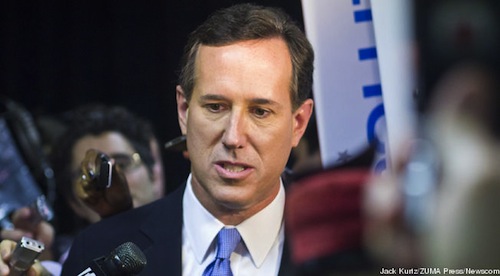I interviewed Greg Gianforte in 2015, and he did not attempt any takedowns. He seemed friendly, if a little nervous. I saw no flash of the belligerence that would characterize his interactions with reporters over the next year and a half. While I disagreed with pretty much all of his political positions, he struck me as a decent person who genuinely wanted to help. Wednesday night, he made it impossible for me to keep thinking of him that way. In response to a question about the Congressional Budget Office score of the Republican health care plan, Gianforte attacked Guardian reporter Ben Jacobs, throwing him to the ground and punching him in the face. The next day, voters selected him to represent Montana in the US House. He spent election day completely incommunicado, refusing to address reporters directly or through his campaign spokesman. He didn’t come out of hiding until the results were in. I congratulate the soon-to-be Representative Gianforte on his victory. I welcome him to the office he won by outing himself as a self-pitying bully with neither adult judgment nor fixed principles, and I look forward to writing about him for the next two years. Today is Friday, and the people committed to winning at all costs have notched another victory. Won’t you survey the field with me?
Tag Archives: results
Times analysis implies Clinton beat Sanders, but he won more delegates
As regular readers of this blog know, I really like the New York Times. I think it’s by far the best newspaper in the country, and I am thrilled to write for them whenever they hire me. But that doesn’t mean the Times is perfect. Last week, news editors came under fire for substantially altering a story about Sanders’s legislative record after it was published online—changing its headline, in the process, from “Bernie Sanders Scored Victories for Years via Legislative Side Doors” to “Via Legislative Side Doors, Bernie Sanders Won Modest Victories.” Today, the Times seems to have reframed another Sanders victory in its analysis of last night’s Democratic primaries. Hillary Clinton won in Arizona, while Sanders won in Idaho and Utah, giving him 67 delegates to her 51. But Jonathan Martin’s analysis does not report delegate totals and strongly implies that Clinton won.
In light turnout, Whitesboro votes to keep seal
Democracy does not measure what everybody wants. It measures what voters want, and convincing people to vote a certain way is not so hard as convincing them to vote at all. Yesterday, the village of Whitesboro, New York voted to keep its official seal, which depicts the village founder throwing an Indian to the ground. It was a victory for residents who knew their history. The seal does not symbolize white supremacy over Indians; it merely depicts the symbolic turning point in the village’s founding, which happened when the unfortunately named Hugh White defeated an Oneida Indian in a wrestling match. I admit it’s counterintuitive, but the Whitesboro residents who voted to keep the seal know their history—all 157 of them. The final vote was 157 to 55. That’s a turnout of 5.7% of the total Whitesboro population.
Three fun stories from yesterday’s primaries
Maybe I’m biased, but Montana politics seem to produce a better story-to-population ratio than any local politics I have seen. Case in point: Missoula and Ravalli counties held their primary elections yesterday, and they produced not one, nor two, but three interesting stories—four if you count the sheriff’s race. TJ McDermott beat his two Democratic opponents to become the Missoula County Sheriff—there are no Republican candidates in the general—shortly after county Democrats amended their bylaws to endorse him, and also after he sued the Sheriff’s Department. That’s not even the best story from yesterday, though.
Dammit!
I accept that my desire to see Rick Santorum win the Republican nomination is destructive and wrong. American politics is not the Puppy Bowl, and we should not just root for the funniest one. Still, the heart wants what it wants. The heart got really excited last night, when it briefly appeared that Santorum might take Ohio. Then boring, sensible America came charging in, and Romney won every district with an airport. Again, that’s good. Rick Santorum should be kept as far from the presidency as possible, for the same reason you don’t keep the octopus with the Christmas lights. But the ugly part of me—the part that wants the comfort of seeing its nihilistic misanthropy confirmed—was hoping to see the GOP’s most absurd candidate take the country’s most predictive state. I suspect that part of me is also the Santorum constituency.





